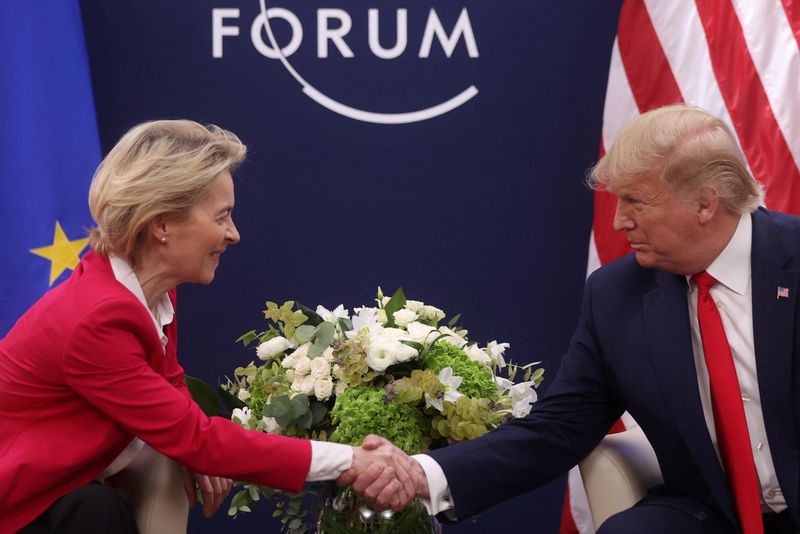By Philip Blenkinsop and Jan Strupczewski
BRUSSELS (Reuters) -When U.S. Treasury Secretary Scott Bessent this week said Switzerland and Britain had jumped to the front of the queue for a trade deal with the United States, he warned the European Union it was moving “much slower”. Brussels says it is not overly worried.
When it comes to trade, the EU is confident its size gives it an advantage. One of the world’s top three economies, the bloc won’t be pushed around and wants a better deal with Washington than the trade agreement struck by Britain, senior EU officials say.
However, the clock is ticking. At stake is a $1.7 trillion trading relationship and the EU wants to avoid a doubling of “reciprocal” tariffs in July and avert a full-blown transatlantic trade war.
“We do not feel weak. We do not feel under undue pressure to accept a deal, which would not be fair for us,” the EU’s trade chief Maros Sefcovic said last week.
Sefcovic was speaking before Bessent made his remarks in Geneva, where Washington and Beijing agreed to slash tariffs of over 100% and put the brakes on their own trade war. Nonetheless, the stance in Brussels has not changed.
The Trump administration has already imposed a 25% tariff on U.S. imports of steel, aluminium and cars, as well as a baseline 10% tariff on almost all countries, with additional “reciprocal” tariffs — making for a combined 20% in the EU’s case — lined up if negotiations during a 90-day pause fail.
It also threatens further tariffs on pharmaceuticals, semiconductors, critical minerals, lumber and trucks.
EU trade officials familiar with the negotiations with Washington talk of difficulties understanding U.S. President Donald Trump’s trade policy objectives.
European Commission President Ursula von der Leyen has not managed to hold a formal meeting with Trump since he regained the U.S. presidency in January, exchanging words only briefly at Pope Francis’s Vatican funeral.
Trump later heaped praise on “fantastic” von der Leyen and said “I hope we’re gonna meet.” She responded saying: “If I go to the White House, I want to have a package we can discuss.”
Her comments speak to Europe’s desire to negotiate a more comprehensive trade agreement and not a deal that delivers a quick political win but is limited in scope, such as the one brokered between Washington and London.
TOUGH TALKS
EU-US trade is more than six times larger than US-UK trade, according to U.S. data. Europe believes its heft counts in talks.
Story Continues
